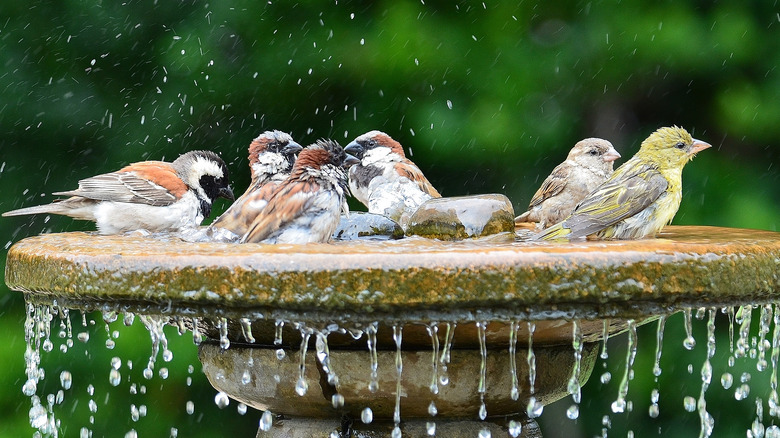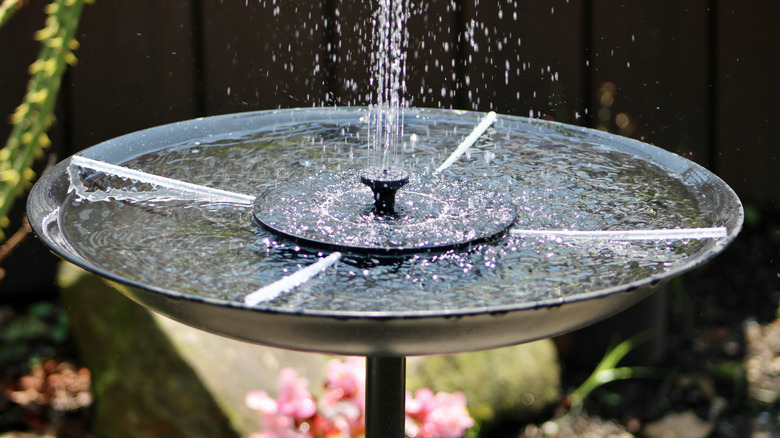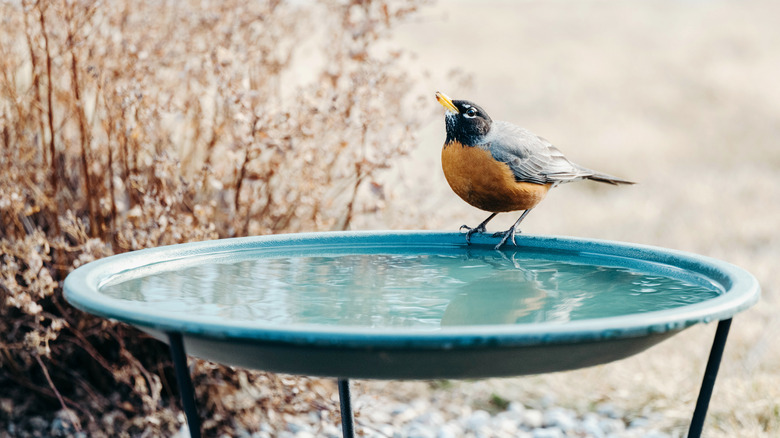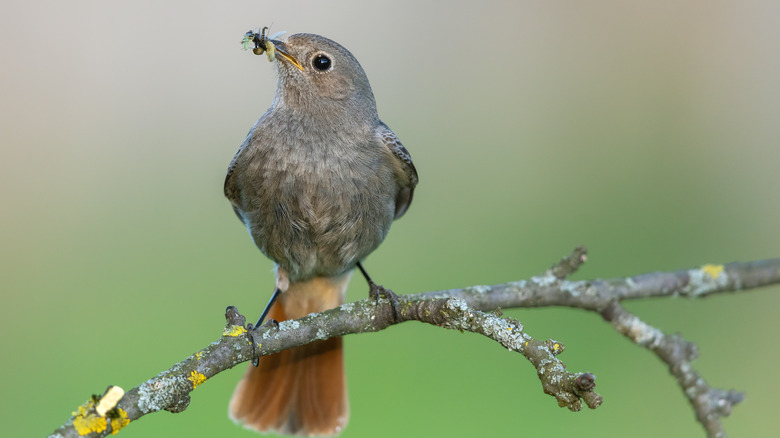The Itchy Reason You Should Think Twice Before Adding A Bird Bath To Your Yard
Bird baths are one of the best ways to attract birds to your yard. Even birds who prefer eating bugs to the sunflower seeds in your feeder may be interested in drinking fresh water or taking a bath. Hot weather is the best time to see birds using your bird bath, but it's also primetime for another flying creature: mosquitoes. They may also be making use of your bird bath.
Adult female mosquitoes bite humans and animals alike and drain the blood that they need to make their eggs. Then, they will look for standing water to lay them in. The shallow, unmoving water that your local birds love is the perfect option for mosquito eggs. Without preventative measures, your bird bath may be breeding generations of new mosquitoes all summer long.
Not all bird baths breed mosquitoes, but preventing them will take a little more effort. Read on to see if you want to put in the work to have a clean, mosquito-free bird bath in your yard.
Add a water feature to your bird bath
Mosquitoes need still water for their eggs and larvae. For many people a shallow bowl of water is all a bird bath is — but it doesn't have to be. If you're willing to make your bird bath a little more elaborate, however, there are a few options that you can add to bird bath to make it less appealing to mosquitoes.
Theoretically, you can just put a hose into your bird bath and let it slowly drip water in all day. This would make it unappealing to mosquitoes, but you will end up wasting a lot of water. Instead, you can consider an attractive fountain that floats in the middle of your bird bath. Another option is something called a water wiggler, which, while less flashy, will also move the water enough to keep it from being a good place for mosquito eggs.
Some may worry that these water features will deter birds, but in actuality, they are attracted to moving water. Your backyard regulars already know where the bird baths are, but birds flying overhead are far more likely to hear moving water or see your fountain than notice a stagnant bowl of water.
Clean it regularly
Many bird bath owners only replenish their bird bath when the water evaporates, but to have a properly maintained and mosquito-free bath, you'll need to clean it far more often.
It takes about a week for eggs laid in your birdbath to fly away as mosquitoes. If you clean your bird bath regularly, you disrupt that life cycle, keeping the larvae from becoming mosquitoes. A good start is to dump out the water every morning and replace it with fresh water — but that may not be enough long-term. Periodically, you should either spray it with a hose or scrub the whole thing with baking soda, lemon juice, or vinegar.
Even without mosquitoes, this is a good policy. Birds who bathe in your bath may drop feathers or waste into the water, so even without mosquitoes leaving water in bird baths for too long can get pretty gross. A dirty bird bath isn't good for birds to drink out of, so it's likely to attract less birds (and more mosquitoes).
Using mosquito dunks
Another option for keeping bird baths and other standing water on your property from breeding mosquitoes is a kind of bacteria called Bacillus thuringiensis (Bt). It is possible and relatively simple to add a small amount of this to the water in your bird bath to kill larvae, but according to naturalist Doug Hitchcox in an interview with Portland Press Herald, that may not be your best option. Using this bacteria in your bird bath may seem like the simplest way of getting mosquitoes out, it might have the unintended consequence of attracting less birds to your yard. Assuming you have your bird bath to make your yard interesting and attractive to birds, that could be a problem.
The strain of Bt that kills mosquitoes also kills gnats and black flies. While most wouldn't mind the idea of a few less flies on their property, your birds may miss them. Black flies are particularly valuable to birds as a food source for their babies, so eliminating them may reduce the number of birds interested in your yard.



